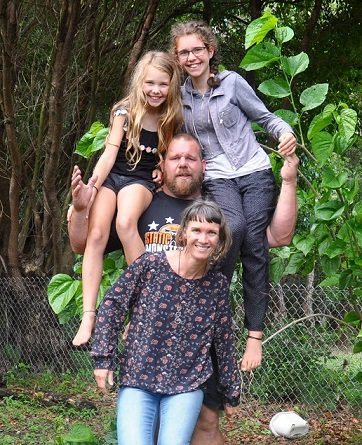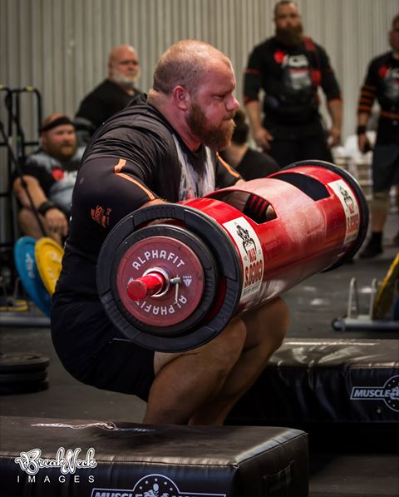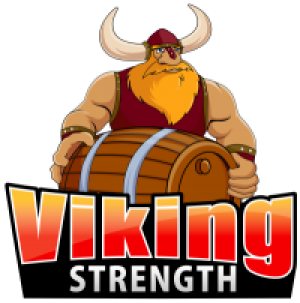
For me the sport of strongman is dotted with amazing characters with fascinating stories. After having a years break from the sport, it is talking to people like Shane that makes me feel like I’ve come home by coming back to Strongman.
Shane Grierson-Jones is strong in his own right, but it’s the passion in his heart fired up by having Parkinson’s disease, and wanting to show his kids what dad can do, which is truly inspiring.
In this interview Shane tells his story, which personally I find truly inspirational.
Phil Burgess: How did you first get involved in the sport of strongman?
Shane: I used to surf and I loved it (going to start again). It’s the only time a big heavy bloke can feel graceful and get the feeling of gliding; it’s the greatest feeling catching a big wave (double overhead +) and watching people shit themselves trying to get out of your way as you charge the face of a big wave (150kg+11ft Long-board could be a little scary).
However I started getting stiff, not being able to look to my left or right when catching waves, and my paddle strength and balance was causing me problems, so I had to give it up.
After giving up surfing and having a year or so without any physical activity I was feeling heavier and unhealthy, so I decided to join a gym. About 6 months after I started at the gym, I developed a slight twitch in my right hand, and after a few months of doctors appointments, tests and specialist visits to work out why I had this tremor I was told
“YOU’VE GOT EARLY ON-SET PARKINSON’S DISEASE!”
So after much soul searching I worked out what I wanted! I wanted my kids to be proud of me, I wanted them to see me challenge myself. I knew I was strong because after a short time at the gym I was lifting heavier than younger guys who had been doing gym work for years (being older and fatter but lifting more hurt some of there ego’s).
I started looking into options of what strengths sports I could get involved in.
Strongman!
Who doesn’t like strongman? I looked online, and found the ASA website, and called to enquire about Strongman, and any gyms in my local area that might be able to help me train. I ended up training with Matt at Bad Wolf Barbell in Ballina. I trained with him for about a year, and he got me stronger (bench 190kg, squat 290kg and 245kg dead).
I competed for the first time at Static Monsters on the Gold Coast last year about a year after I started at the gym. Bad Wolf Barbell has since closed, and I have been without a trainer since and two operations, so my training has been affected by that this year.
But I have signed up with “The StrongMan Way” Tyson Morrissy.
So this year is going to be different!
Phil Burgess: What are your proudest strongman moments to date?
Shane: All, everything!

Being able to be part of the sport; I think at my age, having Parkinson’s, having only been training for 2 years (without specialised equipment) and competing for 1 are all proud moments.
I’ve made alot of silly mistakes that have cost me better placings at comps, but I’ve learnt from those mistakes and moved on. I feel you’re never to old to learn new things, and the mistakes and the lessons I’ve learnt are all part of the experience.
I’ve met some lifelong friends within the Strongman community who feel like family, and they have helped me more than they or I could ever have imagined, so that is also an amazing part of the sport.
Phil Burgess: I’ve read a lovely post by your wife on Facebook about you, which you should be very proud of. Family is a massive thing to you, I can tell. Is this what drives you?
Shane: My wife’s an angel, saint, perfection, and beautiful. She has been by my side for 26 years. She has kept me out of alot of trouble over the years and helped me to achieve things I would never have had the ability to do without her. She is the strongest and most humble person I will ever meet. She is a 3rd of my size, but with an inner strength I could only wish for.
We have two beautiful daughters, who we home educate, and having Parkinson’s Disease (PD) has made me appreciate the ability to spend this time with them and be involved in a more meaningful way in their lives. My wife and daughters are the reason I’ll fight PD until I’m dead.
When I wake in the morning and feel like I’ve had seizures while sleeping and every muscle and joint hurts when I move; to get up to a waiting healthy breakfast, smiles and hugs; it gives me something to fight for.
As I mentioned before, It was after some soul searching that I worked out I wanted to be able to do something my kids could be proud of. When my disease progresses and I’m stiff and struggling with the associated problems, I want them to say ”when we were younger dad use to compete in strongman comps” or “He might not look like it now but your grandfather was as strong as f#ck!”.
I don’t think I’ve done much or anything yet that they should be proud of, so I feel I’ve still got some work to do on the strongman front.
Phil Burgess: How long have you been aware that you had Parkinson’s disease, and how does it affect your daily life?
Shane: I was diagnosed at 40 (now 43), but looking back and knowing more about the disease I now think I had symptoms in my mid to late 30’s. I remember teaching and having to process what I was going to say in my head before saying it or stumbling on words. Then there were the consistent aches (like you’ve done the hardest workout in your life the day before but you didn’t exercise at all).
Parkinson’s Disease at 40 years old is a really hard kick to the balls. It hits hard; everything changes. For a while I tried to stick my head in the sand, go about life as I had before, and not gain knowledge about my illness. This made things worse, and my family took the brunt of my emotional up’s, and many downs.
Most people think Parkinson’s is a tremor, but it is so much more complex than that, and affects almost every part of my life. To name a few aspects of the disease, there is:
- muscle deterioration ( if you watch me lift my right side is much weaker)
- depression
- anxiety,
- insomnia,
- exhaustion,
- extreme body/muscle pain,
- speech slurring,
- lack of facial expression,
- balance issues,
- stiffness and slowing of movements and reflexes.
Because the disease is progressive, the ‘symptoms’ change and worsen, medication changes are a constant part of my life; and as a result of these medication changes I am also often affected by a variety of medication side effects (which can sometimes be as bad as the disease they are suppose to be treating).
For me at the moment, the physical effects of PD is the easier part for me to deal with. It is the depression, anxiety and other mental health aspects that I currently struggle with the most.
I have recently started to read to gain more knowledge around PD to help me understand my disease better, and this has also helped alot in dealing with what I am going through.
I realised I had been acting like I was the only one suffering from PD, when in fact it was also affecting the people close to me. My family needed to change their lifestyle to suit my illness, as they are also dealing with the effects of my illness e.g. my bad moods, poor health, and the hard days when getting out of bed is painful.
Becoming aware of how it was affecting them and being more conscious of that has made it easier for us all to come together to support each other and be more positive about what is, at the end of the day, a really shitty situation.
I used to work as a High School Teacher (Woodwork/Metalwork). I had to stop teaching earlier this year as much of what comes with Parkinson’s makes working within a classroom setting impossible. Most obviously, teaching kids how to use power tools such as drop saws and bandsaws when you have a dominant hand tremor isn’t exactly the best way to demonstrate safe work practices.
I pushed through with teaching for quite a while when it was becoming really hard for me on many different levels. It was difficult to admit to myself (and others) that I couldn’t do it anymore, and it was a blow to me to give up a profession that I really loved and worked hard to get into.
Phil Burgess: How has your life changed for the better?
Shane: Parkinson’s has changed every part of my life. So many things that I took for granted were turned upside down with this diagnosis. But I feel I am now learning and living what’s truly important in life. I had a great life before I was diagnosed, but now its like I’ve been given a time frame to do all the things I want to do – I know I don’t have time to put things off until later.
I truly appreciate my family and friends, and I try not to dwell on stupid shit anymore and instead try to focus on being happy and on what is great about life. I tell my family how much I love them and how much I enjoy their company. I take more time to talk to people and actually listen, and if people are going through a rough time I give a shit about what they are going through.
Tomorrow’s not guaranteed so I don’t go to bed angry, upset or regretting what I did or didn’t say, because tomorrow might not happen. Has it changed my life? YES, because it changed me. I’m still a smart-ass, but I feel I have come out a better person through all this and for that I’m thankful.
Phil Burgess: How does it affect your strongman competing and training?


